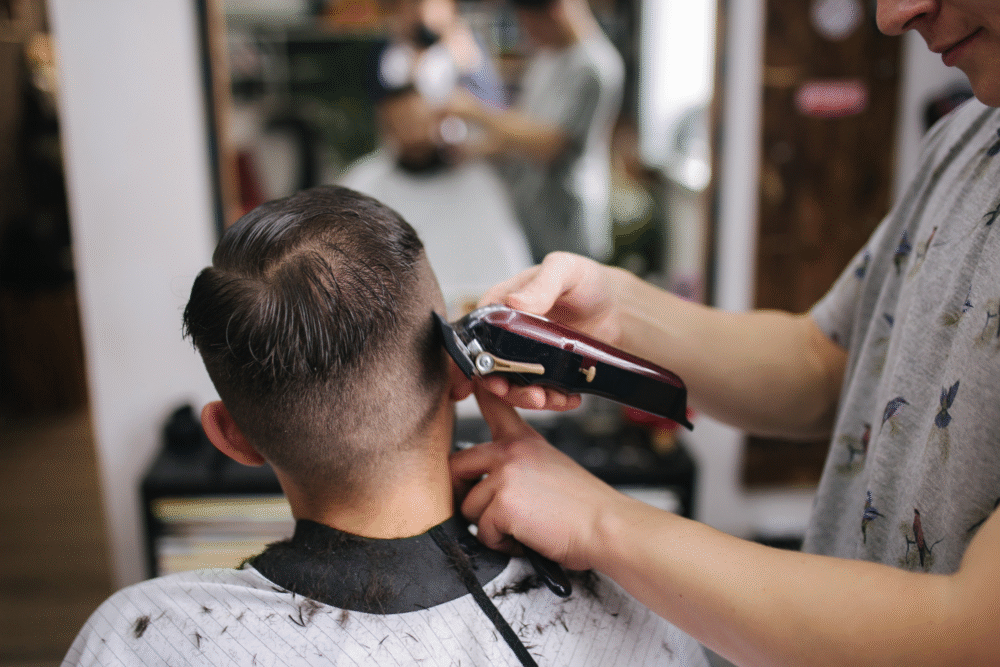A once-simple purchase now feels like a major indulgence.

The relentless rise of inflation has fundamentally altered Gen Z’s relationship with money, transforming everyday purchases into moments of quiet luxury. Items that were once bought without a second thought now feel like a major indulgence, forcing a new level of appreciation and a more mindful approach to spending. This shift in perception is a direct result of a tough economic reality, where every dollar counts in a way they never expected.
This generation finds itself navigating a world where the lines between necessity and luxury have been blurred. The things that were once considered basic comforts are now a source of financial stress, making the act of buying them feel like a treat. This is not about being frivolous; it’s a tangible frustration with a system that has devalued their money and made simple pleasures feel incredibly expensive.
1. A morning coffee from a cafe has become a major indulgence.

The simple act of buying a coffee from a cafe has gone from a daily routine to a weekly luxury. With prices soaring, a single latte can feel like a significant financial commitment, making the purchase a moment of indulgence rather than a mindless habit. This is a clear sign of how inflation has made even the smallest pleasures feel like a major expense, forcing a re-evaluation of what’s worth spending money on.
This shift in perception is a direct result of a tight budget, where every dollar must be accounted for. The feeling of being able to walk into a cafe and buy a drink without a second thought is a luxury many Gen Z no longer have. This is a tangible example of how a once-simple purchase has been elevated to a moment of luxury, a small but significant sacrifice that highlights a new economic reality.
2. Takeout and fast food are now a rare and special treat.

Ordering takeout or grabbing a fast-food meal was once a go-to option for a quick and easy dinner. But with the cost of a single meal now soaring, it has become a rare and special treat. The convenience of not having to cook is now a luxury that comes with a hefty price tag, forcing a return to more affordable, at-home meals. This is a clear sign of how inflation has made everyday conveniences feel like an indulgence.
This shift is a direct result of a tight budget, where the idea of spending a significant portion of a paycheck on a single takeout order feels irresponsible. The feeling of being able to order food without a second thought is a luxury many Gen Z no longer have. This is a tangible example of how a once-simple purchase has been elevated to a moment of luxury, a small but significant sacrifice that highlights a new economic reality.
3. High-quality groceries have been elevated to a luxury.

The ability to buy high-quality, organic, or brand-name groceries has been elevated to a luxury for many in Gen Z. With the price of staples like eggs, milk, and fresh produce soaring, they are opting for store-brand alternatives or making careful choices about what they buy. This is a clear sign of how inflation has made even the most basic necessities feel like a luxury.
This shift is a direct result of a tight budget, where every dollar must be accounted for. The feeling of being able to fill your cart with whatever you want without looking at the price tag is a luxury many Gen Z no longer have. This is a tangible example of how a once-simple purchase has been elevated to a moment of luxury, a small but significant sacrifice that highlights a new economic reality.
4. A brand-new piece of clothing is a significant purchase.

While fast fashion was once a cheap and easy way to update a wardrobe, the cost of a brand-new piece of clothing has become a significant purchase for many in Gen Z. With prices rising and a tight budget, they are opting for thrifting, vintage finds, or simply rewearing what they already own. This is a clear sign of how inflation has made even a simple clothing purchase feel like an indulgence.
This shift is a direct result of a tight budget, where the idea of spending money on a brand-new outfit feels financially irresponsible. The feeling of being able to buy a new piece of clothing without a second thought is a luxury many Gen Z no longer have. This is a tangible example of how a once-simple purchase has been elevated to a moment of luxury, a small but significant sacrifice that highlights a new economic reality.
5. A trip to the movie theater is now a rare event.

The simple pleasure of going to the movie theater to see a new film has been elevated to a luxury. With the high cost of tickets, snacks, and drinks, a night out at the cinema can feel like a major expense. This is a clear sign of how inflation has made even a simple form of entertainment feel like an indulgence, forcing Gen Z to opt for at-home streaming instead.
This shift is a direct result of a tight budget, where every dollar must be accounted for. The feeling of being able to go to the movies without a second thought is a luxury many Gen Z no longer have. This is a tangible example of how a once-simple purchase has been elevated to a moment of luxury, a small but significant sacrifice that highlights a new economic reality.
6. A gym membership is a luxury many are cutting.

A gym membership, once a standard expense for health and wellness, is now a luxury many in Gen Z are cutting. With monthly costs adding up, they are opting for free alternatives like running outside, at-home workouts, or using public parks. This is a clear sign of how inflation has made even the most basic forms of self-care feel like an extravagance, forcing a trade-off between health and cost.
This shift is a direct result of a tight budget, where the idea of spending money on a gym membership feels financially irresponsible. The feeling of being able to go to a gym and use state-of-the-art equipment is a luxury many Gen Z no longer have. This is a tangible example of how a once-simple purchase has been elevated to a moment of luxury, a small but significant sacrifice that highlights a new economic reality.
7. A haircut is a purchase that is now a financial consideration.

The simple act of getting a haircut, once a routine part of life, is now a financial consideration for many in Gen Z. With the cost of a haircut soaring, they are opting to go longer between appointments or even cutting their own hair at home. This is a clear sign of how inflation has made even the most basic personal services feel like a luxury.
This shift is a direct result of a tight budget, where every dollar must be accounted for. The feeling of being able to get a haircut without a second thought is a luxury many Gen Z no longer have. This is a tangible example of how a once-simple purchase has been elevated to a moment of luxury, a small but significant sacrifice that highlights a new economic reality.
8. A tank of gas feels like a major financial commitment.

The simple act of filling up a tank of gas, once a necessary but unremarkable expense, now feels like a major financial commitment. With prices soaring, the cost of a full tank can feel like a significant portion of a paycheck. This is a clear sign of how inflation has made even the most basic necessities feel like an indulgence, forcing a re-evaluation of how and when to drive.
This shift is a direct result of a tight budget, where every dollar must be accounted for. The feeling of being able to drive without a second thought is a luxury many Gen Z no longer have. This is a tangible example of how a once-simple purchase has been elevated to a moment of luxury, a small but significant sacrifice that highlights a new economic reality.
9. A manicure or pedicure is an unaffordable luxury.

The small luxury of a regular manicure or pedicure, once a simple form of self-care, is an unaffordable luxury for many in Gen Z. With the cost of a single appointment soaring, they are opting to do their own nails at home or simply go without. This is a clear sign of how inflation has made even the most basic forms of self-care feel like an extravagance.
This shift is a direct result of a tight budget, where the idea of spending money on a manicure feels financially irresponsible. The feeling of being able to treat yourself to a nice service is a luxury many Gen Z no longer have. This is a tangible example of how a once-simple purchase has been elevated to a moment of luxury, a small but significant sacrifice that highlights a new economic reality.
10. A bottle of wine for dinner is a special treat.

The simple act of buying a bottle of wine to have with dinner, once a small pleasure, is now a special treat. With prices rising, a single bottle can feel like a significant expense, forcing Gen Z to opt for cheaper alternatives or simply go without. This is a clear sign of how inflation has made even the smallest luxuries feel like a major indulgence.
This shift is a direct result of a tight budget, where every dollar must be accounted for. The feeling of being able to buy a bottle of wine without a second thought is a luxury many Gen Z no longer have. This is a tangible example of how a once-simple purchase has been elevated to a moment of luxury, a small but significant sacrifice that highlights a new economic reality.
11. An outdoor patio meal is a planned-out luxury.

The simple pleasure of eating a meal on an outdoor patio at a restaurant, once a standard part of summer, is now a planned-out luxury. With the cost of dining out soaring, Gen Z is treating this as a special event, not a casual occurrence. This is a clear sign of how inflation has made even a simple social activity feel like a major indulgence, forcing a re-evaluation of what’s worth the cost.
This shift is a direct result of a tight budget, where every dollar must be accounted for. The feeling of being able to go out to eat without a second thought is a luxury many Gen Z no longer have. This is a tangible example of how a once-simple purchase has been elevated to a moment of luxury, a small but significant sacrifice that highlights a new economic reality.
12. A new book is a purchase that is now a treat.

The simple act of buying a new book, once a routine part of life, is now a treat. With the cost of books rising, Gen Z is opting for the library, e-readers, or used books instead of buying a new copy. This is a clear sign of how inflation has made even a simple form of entertainment feel like a luxury.
This shift is a direct result of a tight budget, where every dollar must be accounted for. The feeling of being able to buy a new book without a second thought is a luxury many Gen Z no longer have. This is a tangible example of how a once-simple purchase has been elevated to a moment of luxury, a small but significant sacrifice that highlights a new economic reality.
